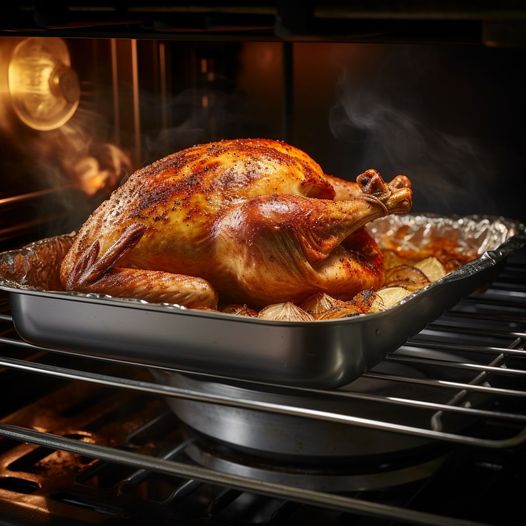ADVERTISEMENT
3. Gravy Preparation: Adding water can be advantageous if you plan to make gravy. The water mixes with the turkey’s juices and drippings, which you can then use as a base for your gravy. This can add more flavor to your final sauce, compared to using turkey drippings alone.
The Case Against Adding Water to the Turkey Pan
However, there are also points to consider on the flip side of the argument:
1. Dilution of Drippings: Water can dilute the turkey’s natural juices, potentially leading to a less flavorful gravy. If you are looking for a robust, concentrated flavor in your gravy, water might not be your best friend.
2. Soggy Skin: As mentioned earlier, a steamy environment is not ideal for achieving crispy, golden-brown skin. For many, the skin is one of the delicacies of a perfectly roasted turkey, and soggy skin can be a disappointment.
3. Longer Cooking Time: Water in the pan can also lead to a longer cooking time since the oven has to heat the water in addition to cooking the turkey. If timings are tight and the oven is full of other dishes, this can be a considerable drawback.
Recommendations for Roasting Turkey with or without Water
The decision to add water to your turkey pan depends on your desired outcome.
If you’re after moist meat and are less concerned about crispy skin, consider adding a small amount of water to the pan. On the other hand, if a crispy exterior is paramount, forgo the water and focus on other methods to keep the turkey moist, such as basting, brining, or using a compound butter under the skin.
Continued on next page
ADVERTISEMENT
